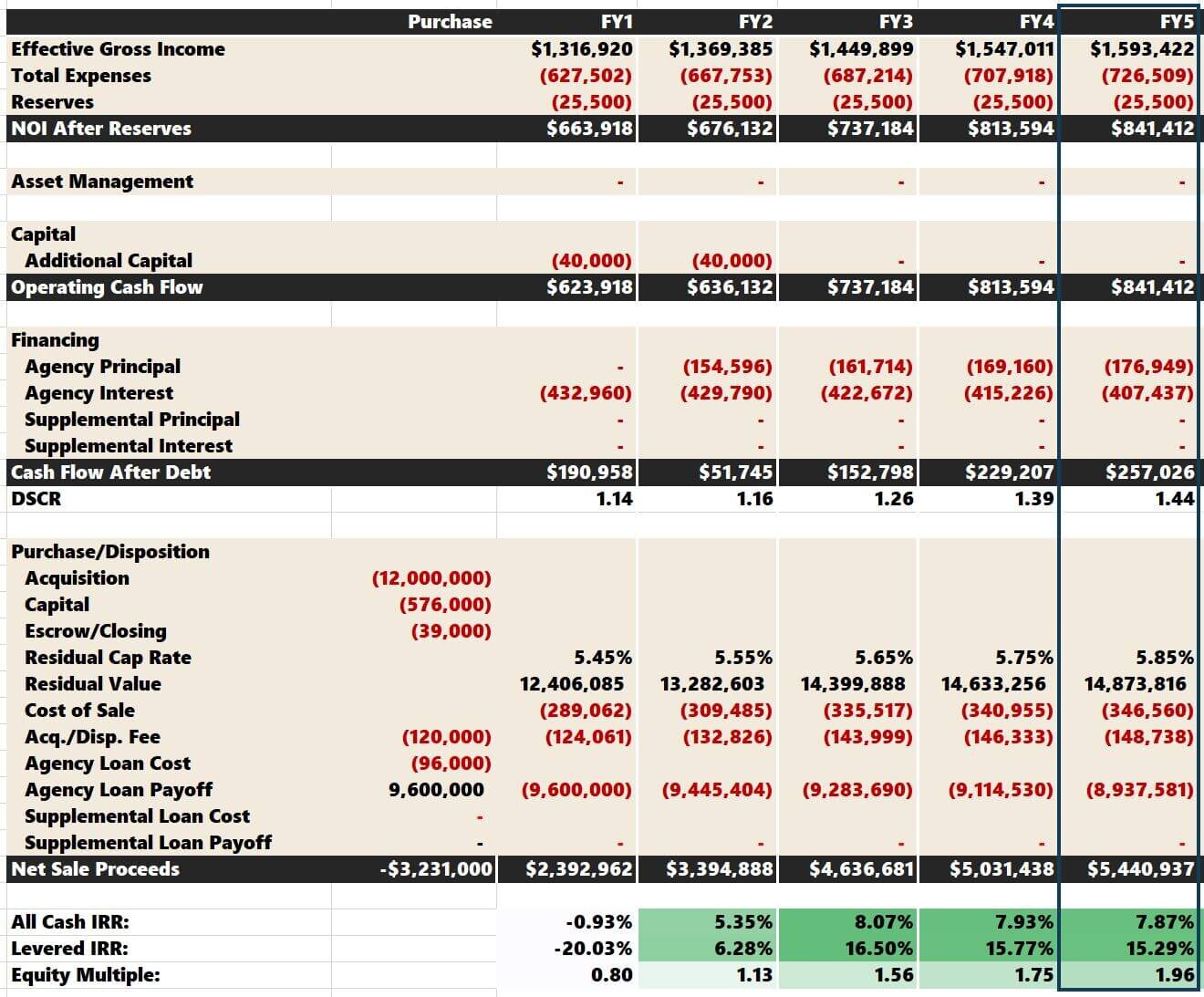

Finance
What Is Court Bonds
Published: October 12, 2023
Learn about court bonds and their role in the world of finance. Understand the importance and benefits of court bonds for financial security.
(Many of the links in this article redirect to a specific reviewed product. Your purchase of these products through affiliate links helps to generate commission for LiveWell, at no extra cost. Learn more)
Table of Contents
Introduction
When it comes to legal matters, the world of finance often comes into play. Court bonds are a crucial aspect of the financial services industry that ensures the integrity of legal proceedings. These bonds provide financial security and assurance that all parties involved in a court case will fulfill their obligations.
Understanding the intricacies of court bonds is essential for anyone involved in legal proceedings, including plaintiffs, defendants, attorneys, and even the general public. This article aims to provide a comprehensive overview of court bonds, their types, and their significance within the legal system.
As legal processes can sometimes be complex and intimidating, the concept of court bonds may seem unfamiliar to many people. However, by breaking down the information into manageable parts, we can gain a better understanding of how these bonds function and why they are necessary.
In the following sections, we will explore the different types of court bonds, their applications, and the process of obtaining them. We will also assess the benefits and risks associated with court bonds to help you make informed decisions when navigating the legal landscape.
So, whether you are an individual involved in a court case, an attorney seeking to provide guidance to your clients, or simply curious about the financial aspects of the legal system, read on to discover the world of court bonds.
Understanding Court Bonds
Court bonds, also known as judicial bonds, are a type of financial guarantee that ensures the fulfillment of legal obligations within the court system. These bonds act as a form of insurance, providing financial protection in case one party fails to fulfill its duties or obligations. They are designed to safeguard the interests of plaintiffs, defendants, and other parties involved in court proceedings.
When a court bond is issued, it acts as a contract between the principal (the party requiring the bond) and the surety or bonding company. The surety guarantees that the principal will fulfill their obligations as mandated by the court. In the event of a breach or failure to comply, the surety will compensate the harmed party according to the terms of the bond.
Court bonds play a vital role in maintaining the integrity of the legal system by providing financial security and ensuring that all parties involved are held accountable. They cover a broad range of legal situations, including civil cases, criminal trials, appeals, and probate proceedings.
It’s important to note that court bonds are not the same as insurance policies. While insurance protects against unforeseen events, court bonds specifically address the obligations and responsibilities that arise in legal proceedings. They provide a financial guarantee that the court’s orders will be carried out as required.
In order to understand court bonds more comprehensively, it is essential to explore the different types of bonds that exist and their specific functions within the legal system.
Types of Court Bonds
There are various types of court bonds that cater to different legal scenarios. Each type of bond serves a specific purpose and ensures that the obligations of the parties involved are met. Let’s explore some of the common types of court bonds:
- Bail Bonds: Bail bonds are perhaps the most well-known type of court bond. They are issued to secure the release of a defendant from custody while they await trial. The bond guarantees that the defendant will appear in court as required. If the defendant fails to appear, the bail amount is forfeited to the court.
- Appeal Bonds: Appeal bonds, also known as supersedeas bonds, are required when a party wishes to appeal a court judgment. These bonds protect the appellee, ensuring that they will receive the awarded amount if the judgment is upheld on appeal. Appeal bonds also cover any additional costs that the appellee may incur due to the delay caused by the appeal process.
- Probate Bonds: Probate bonds are typically required in probate cases, where an individual has been appointed as an executor, administrator, or guardian of an estate. These bonds protect the interests of beneficiaries and ensure that the appointed individual carries out their duties faithfully and honestly.
- Civil Court Bonds: Civil court bonds encompass a wide range of bonds used in various civil proceedings. For example, attachment bonds are required when a plaintiff seeks to attach a defendant’s assets before a judgment is rendered. Injunction bonds are necessary when a court grants an injunction, protecting the defendant from any damages caused by the injunction if it is later found to be wrongful.
These are just a few examples of the different types of court bonds available. Depending on the jurisdiction and the nature of the case, other types of bonds may exist as well. It is essential to consult with legal professionals or bonding companies to determine the specific bond required for a particular situation.
Now that we have covered the different types of court bonds, let’s take a closer look at the process involved in obtaining them.
Bail Bonds
Bail bonds are one of the most common types of court bonds used in the legal system. They play a critical role in securing the release of defendants from custody while they await trial. Bail bonds provide an alternative to defendants having to remain in jail until their court date, allowing them to resume their normal lives and continue working or supporting their families.
When someone is arrested and charged with a crime, they are typically taken into police custody. In many cases, the court will set a bail amount, which is the sum of money that must be paid to secure the defendant’s release. Bail acts as a financial guarantee that the defendant will appear in court as required, thereby ensuring their participation in the legal proceedings.
However, posting the full bail amount may not be feasible for everyone. This is where bail bonds come into play. A bail bond is a contract between the defendant, their cosigner or indemnitor, and a bail bondsman or agency.
Here’s how the process works: If a defendant cannot afford to pay the full bail amount, they can seek the assistance of a bail bondsman. The bail bondsman will typically require the defendant or their cosigner to pay a percentage of the bail amount, typically 10% to 15%, as a fee. The bail bondsman will then post the full bail amount on behalf of the defendant, guaranteeing their release.
It’s important to note that the fee paid to the bail bondsman is non-refundable, even if the defendant is found innocent or the case is dismissed. However, if the defendant fails to appear in court, the bail bondsman may be required to pay the full bail amount and may seek reimbursement from the defendant or their cosigner.
In summary, bail bonds provide a practical solution for defendants who are unable to pay the full bail amount. They allow individuals to secure their release from custody while awaiting trial, ensuring their participation in the legal process. Bail bonds not only benefit defendants but also contribute to the overall efficiency and fairness of the criminal justice system.
Next, let’s explore another type of court bond known as appeal bonds.
Appeal Bonds
Appeal bonds, also referred to as supersedeas bonds, are an essential aspect of the legal system, particularly in cases where a party wishes to appeal a court judgment. These bonds provide financial security and protect the interests of the prevailing party, typically the appellee, during the appeal process.
When a party intends to appeal a court decision, they must file a notice of appeal and often post an appeal bond. The purpose of an appeal bond is to guarantee that the appellant, the party seeking the appeal, will satisfy the judgment if the appeal is unsuccessful. It ensures that the appellee is not left uncompensated during the potentially lengthy period of the appeal.
The amount of the appeal bond is typically set by the court and is determined based on the judgment or the value of the matter in dispute. In some cases, the court may require the full judgment amount to be posted as the bond. However, depending on the jurisdiction and applicable laws, the bond amount may be lower or subject to certain conditions.
If the appellant succeeds in their appeal, the appeal bond is usually discharged, and the bond amount is returned to the appellant. However, if the appellate court upholds the original judgment, the appellee may recover from the appeal bond to satisfy the outstanding judgment.
Appeal bonds serve several important purposes within the legal system. They provide financial protection to the appellee, ensuring that they will receive the awarded amount if the initial judgment is upheld. Additionally, appeal bonds act as a deterrent against frivolous appeals, as appellants must bear the financial burden of posting the bond. This helps to maintain the efficiency and integrity of the court system by discouraging meritless appeals.
It’s worth noting that the rules and requirements regarding appeal bonds can vary across jurisdictions. Parties involved in the appeal process should consult with legal professionals to understand the specific regulations applicable to their case and ensure compliance with the necessary bond requirements.
Now that we have explored bail bonds and appeal bonds, let’s delve into another important type of court bond known as probate bonds.
Probate Bonds
Probate bonds, also known as executor bonds or fiduciary bonds, are a type of court bond that is typically required in probate proceedings. These bonds are designed to protect the interests of beneficiaries and ensure the proper administration of an estate when an individual is appointed as an executor, administrator, or guardian.
When someone passes away, their estate often goes through a legal process known as probate. During probate, the deceased person’s assets are distributed and any outstanding debts are paid off. An executor or administrator is appointed by the court to oversee this process and ensure that it is carried out according to the wishes of the deceased and in compliance with applicable laws.
Probate bonds serve as a safeguard against potential mismanagement or negligence by the appointed individual. By requiring the executor or administrator to obtain a probate bond, the court can provide a level of financial protection to the beneficiaries and minimize the risk of fraudulent or wrongful actions.
Probate bonds function as a form of insurance for the estate, protecting it from any potential harm caused by the executor’s actions. If the executor fails to perform their duties faithfully, the bond can be used to reimburse the estate for any losses incurred. This ensures that beneficiaries are not left uncompensated if the executor acts negligently or misappropriates estate assets.
The amount of the probate bond is typically determined based on the value of the estate or the assets being managed. The court may set a bond amount that is proportionate to the estate’s value or require a fixed bond amount, depending on the jurisdiction and the specific circumstances of the case.
It’s important to note that the probate bond premium, which is the cost associated with obtaining the bond, is typically paid by the estate. The premium amount can vary depending on the bond amount and other factors such as the executor’s creditworthiness. The premium is usually a small percentage of the bond amount and is renewable on an annual basis until the probate process is completed.
By requiring probate bonds, the court ensures that the executor or administrator acts in the best interest of the estate and its beneficiaries. This helps maintain transparency, accountability, and integrity within the probate process, ultimately ensuring that the wishes of the deceased are properly carried out.
Now that we have explored probate bonds, let’s move on to discuss civil court bonds and their significance in legal proceedings.
Civil Court Bonds
Civil court bonds encompass a wide range of bonds used in various civil proceedings. These bonds serve different purposes and provide financial security in specific situations within the civil court system. Let’s explore some of the common types of civil court bonds:
- Attachment Bonds: Attachment bonds are required when a plaintiff seeks to attach a defendant’s assets before a judgment has been rendered. By posting an attachment bond, the plaintiff provides assurance that they will compensate the defendant if the court later determines that the attachment was wrongful or unnecessary.
- Injunction Bonds: Injunction bonds are typically required when a court grants an injunction, which is a court order that restrains a party from taking certain actions. The bond ensures that the defendant will be protected from any damages caused by the injunction if it is later determined to be wrongful or improperly issued.
- Cost Bonds: Cost bonds are often required in certain civil proceedings to cover the anticipated costs associated with the case. Examples of costs may include filing fees, expert witness fees, and other expenses incurred during the litigation process. The bond ensures that the party responsible for the costs will fulfill their financial obligations.
- Plaintiff Bonds: Plaintiff bonds, also known as indemnity bonds, are sometimes required when a defendant seeks to counterclaim against a plaintiff. The bond provides financial protection to the defendant, guaranteeing that they will be compensated for any damages or legal costs incurred if the plaintiff’s claim is unsuccessful.
These are just a few examples of the types of civil court bonds that may be required in specific situations. The specific bond required will depend on the nature of the case, the jurisdiction, and the court’s discretion.
Civil court bonds play a crucial role in these legal proceedings by providing financial security and ensuring that the interests of all parties involved are protected. They promote fairness, transparency, and accountability within the civil justice system, giving confidence to plaintiffs, defendants, and the court itself.
Next, let’s explore the process of obtaining court bonds and the steps involved in securing financial protection within the legal system.
Process for Obtaining Court Bonds
The process of obtaining court bonds involves several steps and requires the cooperation of different parties. Whether you are a plaintiff, defendant, or someone seeking to fulfill a court-imposed requirement, here is a general overview of the process for obtaining court bonds:
- Evaluate the bond requirement: The first step is to determine the specific type of court bond required for your situation. This can vary depending on the nature of the case and the court’s instructions. Consulting with legal professionals or bonding companies can help you understand the bond requirements and determine the appropriate bond type.
- Obtain a bond application: Once you have identified the type of bond required, you will need to complete a bond application. This application typically asks for information about the case, the parties involved, and the bond amount. The form may also require additional documentation or supporting materials.
- Work with a bonding company: Court bonds are typically issued by bonding companies or sureties. It is advisable to research reputable bonding companies with experience in providing court bonds. Working with a knowledgeable and reliable bonding company is crucial to ensure a smooth and efficient process.
- Submit the application: Once you have completed the bond application, you will need to submit it to the bonding company along with any required documentation. The company will review the application and assess the risk associated with issuing the bond.
- Provide financial information: Depending on the bond type and the bonding company’s requirements, you may need to provide financial information. This could include credit reports, financial statements, and other relevant documents. The bonding company will evaluate your financial stability and credibility before deciding to issue the bond.
- Pay the premium: If the bonding company approves your application, you will be required to pay a premium for the bond. The premium amount is typically a percentage of the bond amount and covers the company’s services and risk. The premium is non-refundable, even if the case is dismissed or settled without any financial claims made against the bond.
- Secure the bond: Once the premium is paid, the bonding company will issue the court bond. This includes preparing the necessary documentation and providing proof of the bond’s existence and validity. The bond can then be submitted to the court or any other party requiring proof of financial security.
It’s important to note that the timeline for obtaining court bonds can vary depending on the complexity of the case, the responsiveness of the parties involved, and the bonding company’s internal processes. It is advisable to start the process well in advance to ensure that the bond is obtained in a timely manner.
By following these steps and working closely with a trusted bonding company, you can navigate the process of obtaining court bonds and fulfill the necessary financial obligations within the legal system.
Now that we have covered the process of obtaining court bonds, let’s weigh the benefits and risks associated with these financial instruments.
Benefits and Risks of Court Bonds
Court bonds offer several benefits and serve important purposes within the legal system. However, like any financial instrument, they also come with potential risks. Understanding these benefits and risks is essential for individuals and parties involved in legal proceedings. Let’s explore them in more detail:
Benefits of Court Bonds:
- Financial Protection: Court bonds provide financial security to the parties involved in legal proceedings. They ensure that if one party fails to fulfill their obligations, the injured party will be compensated according to the terms of the bond.
- Compliance with Court Orders: Court bonds guarantee that court orders will be carried out as required. They encourage parties to comply with court judgments, thereby maintaining the integrity of the legal system.
- Access to Release from Custody: In the case of bail bonds, individuals who cannot afford the full bail amount can secure their release from custody while awaiting trial. This allows them to continue their daily lives, support their families, and work on their legal defense.
- Promotion of Fairness: Court bonds help level the playing field by minimizing the risk of fraudulent actions, frivolous appeals, or mismanagement of assets. They ensure that parties fulfill their obligations and provide financial recourse if they fail to do so.
Risks of Court Bonds:
- Financial Liability: Parties who secure court bonds may be held financially responsible if they fail to fulfill their obligations. This can include repayment of the bond amount, fees, and additional losses incurred by the affected party.
- Non-Refundable Premium: The premium paid for court bonds is typically non-refundable, even if the case is dismissed, settled, or if the bond remains unused. This should be considered when assessing the overall cost and benefits of obtaining a court bond.
- Creditworthiness: The issuance of court bonds may require the evaluation of the applicant’s creditworthiness. This can pose challenges for individuals or entities with poor credit history or limited financial resources.
- Legal Consequences: Failing to fulfill the obligations outlined in a court bond can result in legal repercussions, including potential lawsuits, financial penalties, and damage to one’s reputation.
Court bonds are essential financial tools within the legal system, providing protection, ensuring compliance, and promoting fairness. However, it’s crucial to carefully consider the associated risks, obligations, and financial implications before obtaining or providing a court bond.
Now that we have examined the benefits and risks of court bonds, let’s conclude our exploration of these important financial instruments.
Conclusion
Court bonds play a vital role in the legal system, providing financial security and ensuring the fulfillment of obligations within legal proceedings. Understanding the different types of court bonds, such as bail bonds, appeal bonds, probate bonds, and civil court bonds, is essential for individuals involved in legal matters.
By offering financial protection, court bonds promote fairness, accountability, and compliance with court orders. Bail bonds enable defendants to secure their release from custody, appeal bonds protect the interests of prevailing parties during the appeal process, probate bonds safeguard the estate and beneficiaries, and civil court bonds ensure financial security in a range of civil proceedings.
The process of obtaining court bonds involves evaluating bond requirements, submitting applications, working with bonding companies or sureties, and securing the bond after paying the premium. It is important to follow this process diligently and understand the associated benefits and risks.
The benefits of court bonds include financial protection, compliance with court orders, access to release from custody, and the promotion of fairness within the legal system. However, there are also risks to consider, such as potential financial liability, non-refundable premiums, creditworthiness evaluation, and legal consequences for non-compliance.
In conclusion, court bonds are crucial components of the legal system that provide financial security and help maintain integrity. They serve the interests of plaintiffs, defendants, and other parties involved in legal proceedings. By understanding the types of court bonds, the process of obtaining them, and the potential benefits and risks, individuals can navigate the legal landscape with confidence and make informed decisions.
Whether you are seeking a bail bond for a loved one, appealing a court judgment, administering an estate, or involved in civil litigation, understanding court bonds is crucial. Consult with legal professionals or bonding companies to obtain the necessary guidance and expertise in securing the appropriate court bond for your specific situation.














